8 Best Freeze Dried Foods (For Prepping & Long Term Storage)
This post may contain affiliate links. Read my full disclosure here.
From our root cellar to home freeze drying, we’re all about stocking up on healthy food our family enjoys. These are our tops choices for best freeze dried foods, from budget friendly options to organic and gluten free emergency food.
Freeze dried meals are great for backpacking food due to their light weight, but they’re also the champ for long term food storage. (Some foods are shelf stable up to 25 to 30 years.)
With inflation, extreme weather and other supply chain disruptions, there’s never been a better time to build up your food storage. It’s an investment you know you can use.
We taste tested many popular brands and compared ingredients, and these are our favorites.
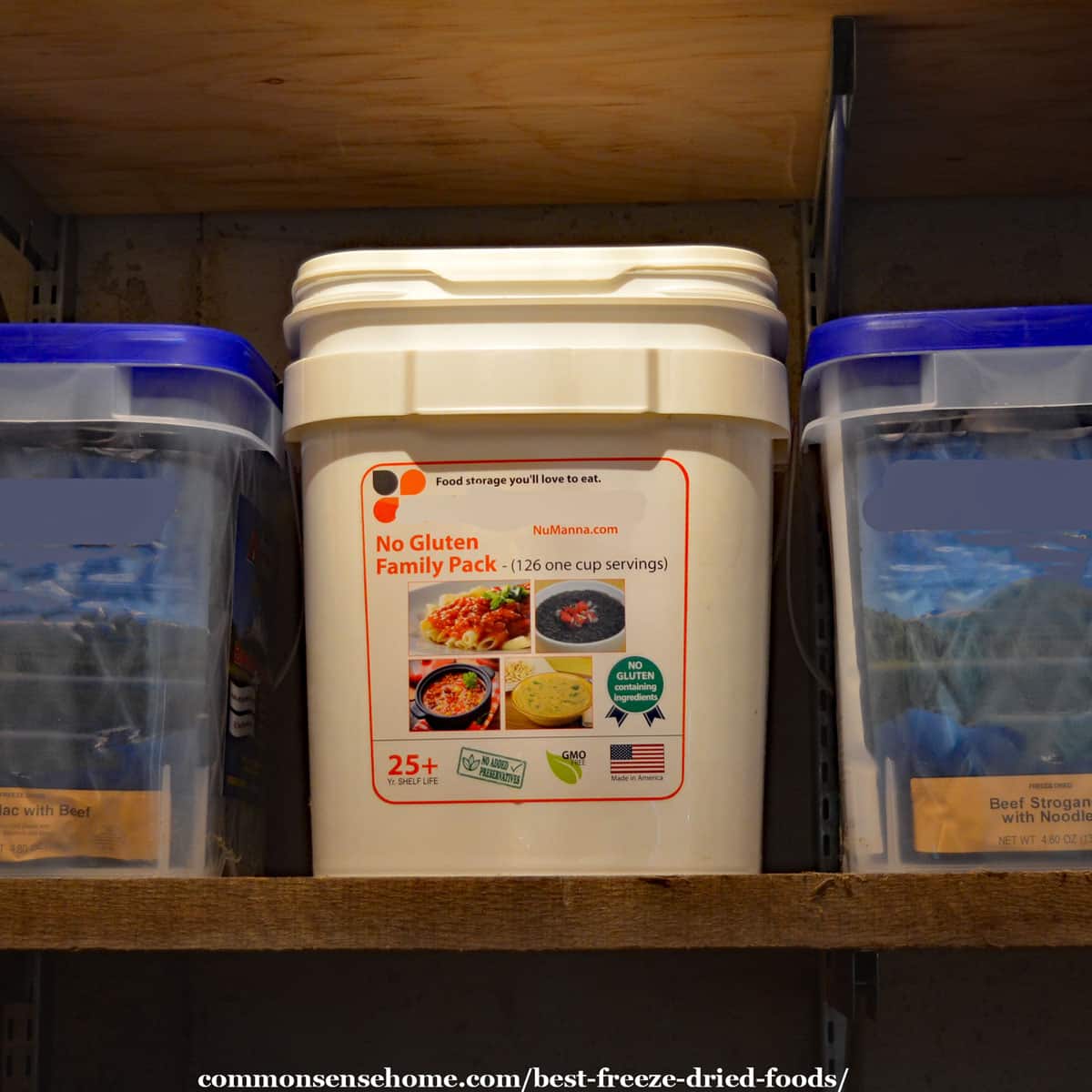
Table of contents
- #1 – Best Freeze Dried Food for Prepping – Home Freeze Dried Foods
- #2 – Valley Food Storage
- #3 – ReadyWise Emergency Food Supply (Organic & Gluten Free Options)
- #4 – Numanna
- #5 – Augason Farms
- #6 – Mountain House
- How Long Does Freeze Dried Food Last?
- How long does freeze dried food last after opening?
- How Does Freeze Dried Food Taste?
- Which Food Storage Option is Best?
- What Else to Prep
- Related Articles
#1 – Best Freeze Dried Food for Prepping – Home Freeze Dried Foods
Our favorite freeze dried foods are from our home freeze drier. We’ve had our unit since 2016, and dried a lot of different foods. We grow our own food or buy in bulk, which allows us to have options like freeze dried grassfed beef that you cannot get anywhere else.
Fajita meat tasted like meat flavored “cheetos” when freeze dried. It rehydrated in minutes for a fast supper that tasted like fresh cooked. We also make taco meat, sloppy joe meat, and pulled beef, which are our version of “fast food”. My brother said the freeze dried peaches were better than candy.
Almost any food can be freeze dried at home – even dairy such as milk, sour cream and cheese. (We freeze dried some shredded cheese. It turned out intensely cheesy and tasty, great for soups and casseroles.)
People are freeze drying everything from flavored oatmeal to jumbo shrimp – all with good results. The only foods that don’t freeze dry well are those that are extremely high in fat – like butter – or very high in sugar – like jam.
We’ve tried an assortment of pre-made meals, but most of our freeze dried food storage is home freeze dried food. We store our home freeze dried items in mason jars or Mylar bags with oxygen absorbers.
See “Home Freeze Drying – What You Need to Know Before You Buy a Freeze Dryer” for more information.
#2 – Valley Food Storage
I like Valley Food Storage because they have no GMOs, no MSG, no fillers, and no hydrogenated oils.
The Family Emergency Kit is a good starting point for stocking up. It feeds a family of four 2,000 calories per day for up to 6 days and has a 25 year shelf life.
Like many prepackaged long term storage meals, the meal kits are light on meat, but they do offer a freeze dried meat bucket. They have subscribe and save plans that ship a set amount of food each month at a discount. This allows you to build up your storage over time.
#3 – ReadyWise Emergency Food Supply (Organic & Gluten Free Options)
The ReadyWise Organic Bucket has 90 servings of 4 different ready-to eat freeze dried meals. It’s one of the few organic emergency food kits available.
Each pouch contains four servings, and they are easy to prepare because you can add hot or cold water.
Readywise also carries starter kits, family year supply kits, gluten free emergency food kits in a grab and go bucket, freeze dried meat bundles, and more.
There’s a lot to see on the site. Like Valley Food Storage, they offer a Subscribe and Save option to let you stock up over time.
#4 – Numanna
The NuManna Family Pack with Meat contains a total of 146 Servings (116 Lunch/Dinner servings, 30 Breakfast Servings). It’s Soy free, GMO free, no MSG, no aspartame & no high fructose corn syrup, and has a 25 year shelf life.
#5 – Augason Farms
Augason Farms is a good source for freeze dried vegetables and fruit (and dehydrated veggies and fruit). They also stock real meat – freeze dried beef and chicken chunks – and a scrambled egg mix and dried egg powder.
Foods come packed in #10 cans, which can be resealed, so they work well for use in recipes. I’m not as fond of their meals, which have ingredients we try to avoid.
#6 – Mountain House
You can’t mention freeze dried emergency food backpacking meals and not mention Mountain House. They’ve been around since 1969, and you can find the products just about anywhere that sells emergency and camping supplies.
Mountain House beef stroganoff is often held up as the brand to beat in taste tests, and they have some of the longest shelf life foods in the industry. You can prep most of the food right in the pouch, making two servings or one large single serve.
I rank Mountain House a little farther down the list because many of their classic dishes come with a lot of fillers and preservatives. Their kits also come in boxes rather then buckets. This makes keeps prices a little lower, but they’re not weather proof.
The Adventure Weekender Kit comes with 12 servings (6 pouches) of breakfast and lunch foods. Just add water to the pouch, stir and close, let rest, then eat.
#7 – Peak Refuel
Founded in 2018, Peak Refuel is a relative newcomer to the emergency food storage scene. Their meals use 100% real meat and use non GMO ingredients. They are also higher in protein than most freeze dried meals.
They have some more varied meal options, like chicken coconut curry, and snacks like peanut butter chocolate chip cookie bites. Geared towards the camping crowd, these meals only have a shelf life of five years, so keep that in mind when planning long term food storage.
Would you like to save this?
Their Peak Refuel Basecamp Bucket has 24 servings with 2 breakfasts and 4 entrees in 12 pouches.
#8 – Backpackers Pantry
Backpacker’s Pantry started out in 1951 as Dry-Lite Foods, and switched to the current name with new owners in 1971. Their products have a shelf life of 3-10 years.
For those dealing with food allergies, Backpacker’s Pantry offers tree nut free, soy free, dairy free, peanuts free and gluten free freeze dried foods.
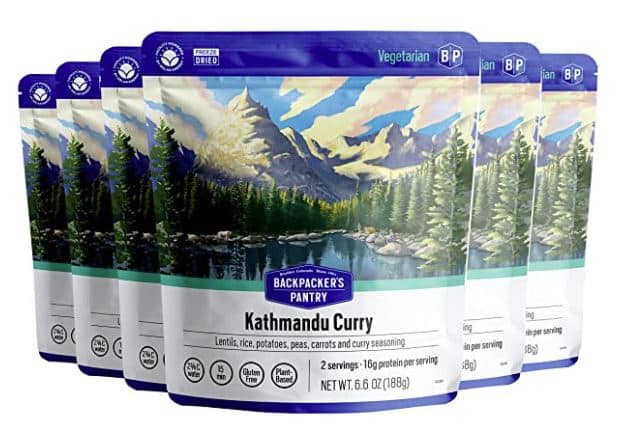
How Long Does Freeze Dried Food Last?
Matt from HarvestRight shared: “Low fat content foods like fruits, vegetables, lean meat, rice, noodles, etc. have a shelf life of 20+ years when packaged properly. The industry recommends 7 mil Mylar bags or #10 cans with a high quality oxygen absorber.
Higher fat foods have a 10-15 year shelf life. When fat reacts with oxygen it can cause the food to spoil….hence the importance for proper packaging.”
When you’re purchasing freeze dried emergency food, check the manufacturer’s recommendations. Packages should be clearly marked with expected storage life. Make sure to rotate your stock accordingly.
How long does freeze dried food last after opening?
For best quality, use freeze dried foods as soon as possible after opening. Once a package is opened, freeze dried food quickly starts to absorb moisture and oxygen from the air.
Number 10 cans of freeze dried foods are best used within a few months of opening, but may last up to a year or so. Keep seals intact and close containers promptly.
Low fat foods like fruits and vegetables last longer. Meats and foods with oils spoil more quickly. We had freeze dried meat in a mason jar that was not vacuumed sealed pick up off flavors in about two weeks.
What’s the Best Way to Store Freeze Dried Food for Prepping?
Like most food storage, freeze dried foods keeps best in a cool, dry location, out of direct sunlight. That said, it’s better to keep food in an area where temperatures may fluctuate, like a garage, than to not have emergency food storage.
Make sure your storage is protected from rodents and insects. The bucket kits provide an extra layer of protection, but you can use your own five gallon bucket or other sturdy container. (Rats and mice can chew through Mylar, but insects generally cannot.)
We keep our home freeze dried foods in sections of rain gutter mounted on a wall as shallow shelving, in open bins, in boxes, and in big totes with lids. Some foods get packed in mason jars if we intend to use them fairly quickly.
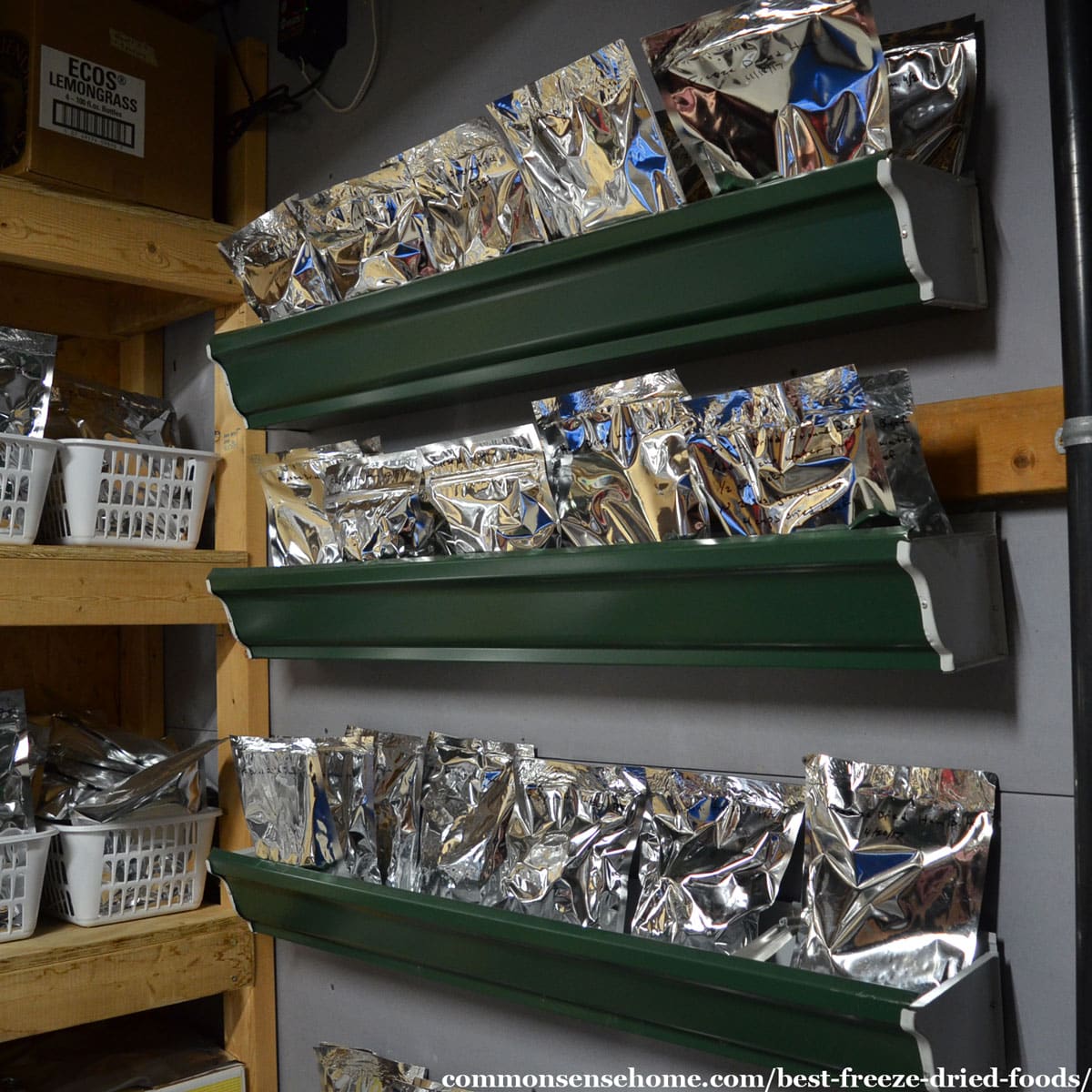
See “Preparedness Storage – Finding Room and Keeping it Safe and Sound” for more detailed information.
How Does Freeze Dried Food Taste?
Freeze dried food tastes like food. The better the quality you start with, the better the finished product. Herb flavor profiles stay true, so make sure to look for ingredient lists with food that you like.
It’s best to try a sample of food before purchasing a large amount (like a supply for several months). We tried several brands that our family didn’t like or found to be plain awful. I’m not a fan of Legacy, Thrive, or My Patriot Supply, but they may taste good to you.
For instance, the dried potato soups were pretty universally bland, but other dishes were loaded with cilantro or jalapenos, or high in sugar or salt.
Unlike standard dehydrated food, freeze dried food is light and airy when dried, not leathery. Freeze dried food also tends to rehydrate more quickly – although we often eat plain fruits and veggies without rehydrating.
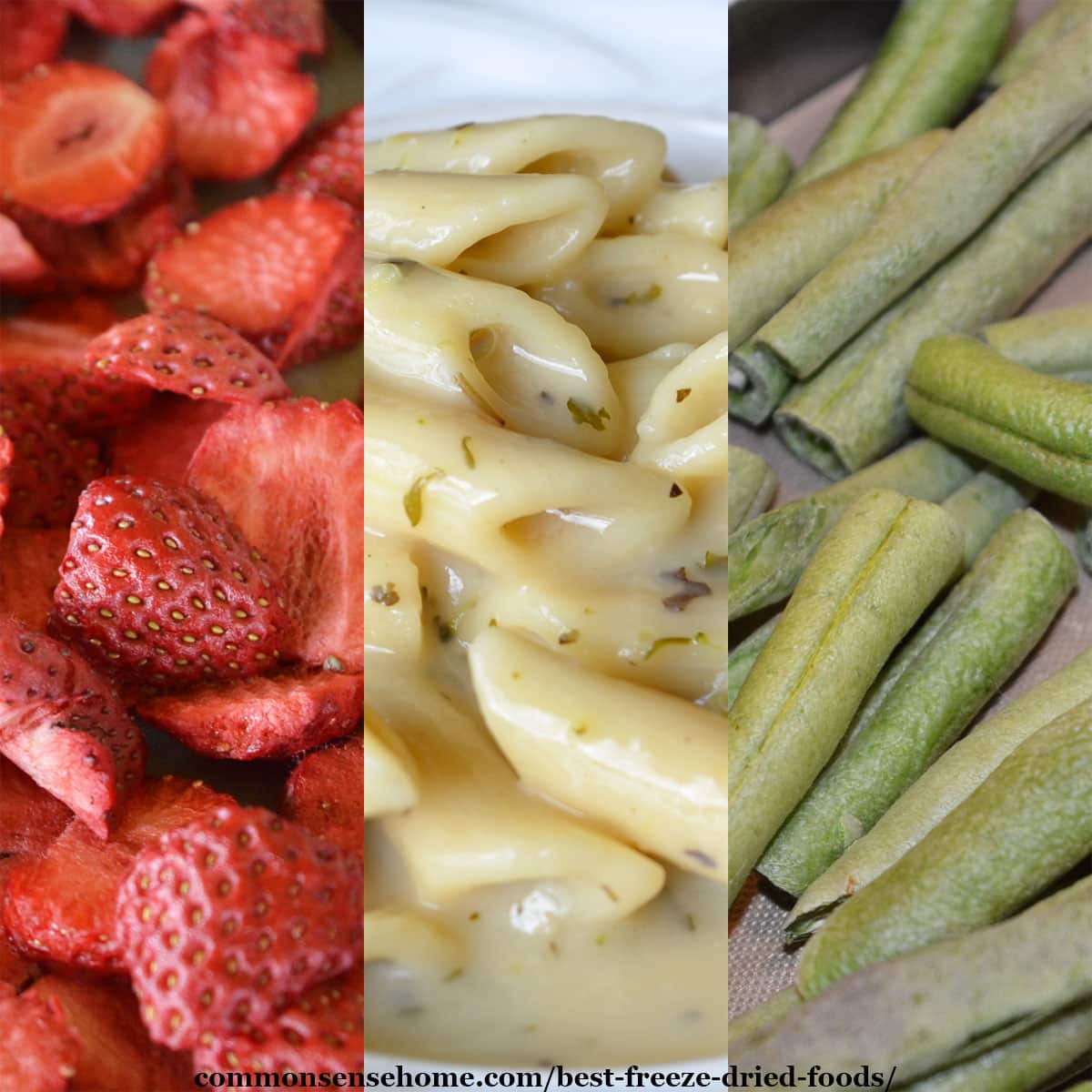
Which Food Storage Option is Best?
My family and I use a variety of food storage options – including root cellaring, canning, freezing, and dehydrating – as well as freeze drying.
I really like the super long shelf life of freeze dried foods. The food tastes good, and I expect to keep freeze drying for many years to come.
If your budget is tight, look at other options for food storage. Most of these won’t keep as long as freeze dried food, but they can certainly feed your family for months or even years to come.
Long Shelf Life Foods – What Lasts Best (with Chart)
Foods to Stock Up On (for Daily Use or Emergencies)
Best Non Perishable Foods (For Home Use or Donations)
What Else to Prep
Ideally, you should have a minimum of two weeks of food in the house, along with water, a water filter, some way to cook without power, a potty plan, and a few other items.
The article “What to do when the power goes out” has a detailed list of preps for an extended power outage. This covers the basics for bad weather or other grid down situations.
Related Articles
- Dehydrator Versus Freeze Dryer – What’s the Difference?
- Home Freeze Drying – Read this Before You Buy a Freeze Dryer
- Harvest Right Freeze Dryer – Cost Analysis and Optimizing Load Size
- 11 Freeze Drying Mistakes to Avoid for Best Storage Quality
- Browse all of our Food Storage Articles

This article is by Laurie Neverman. She has a BS in Math/Physics and MS in Mechanical Engineering with an emphasis in renewable energy. Laurie and her family live in a “concrete bunker” (ICF home) with a permaculture food forest, greenhouses, and three types of solar. They “walk the talk” of preparedness by living a more self-reliant lifestyle.

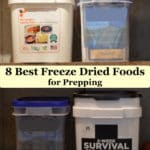
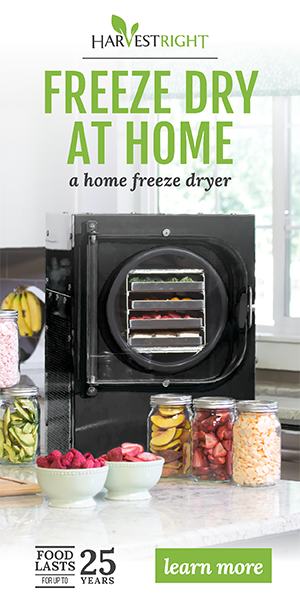
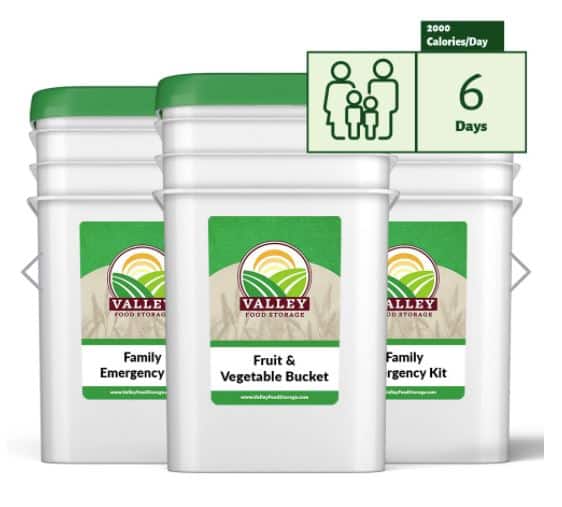
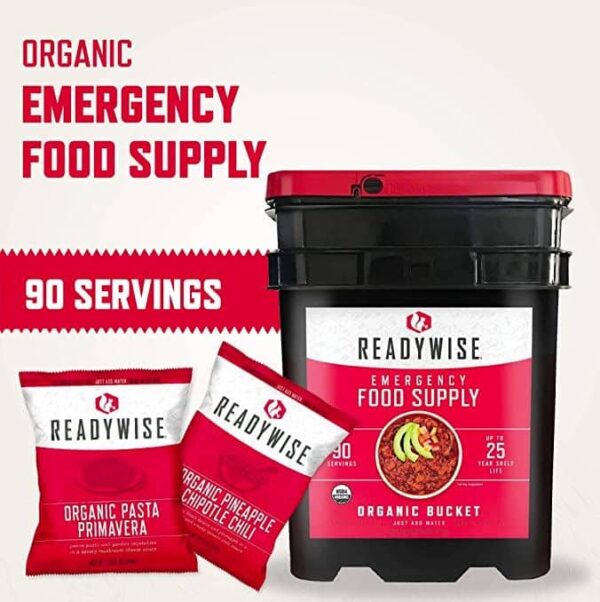
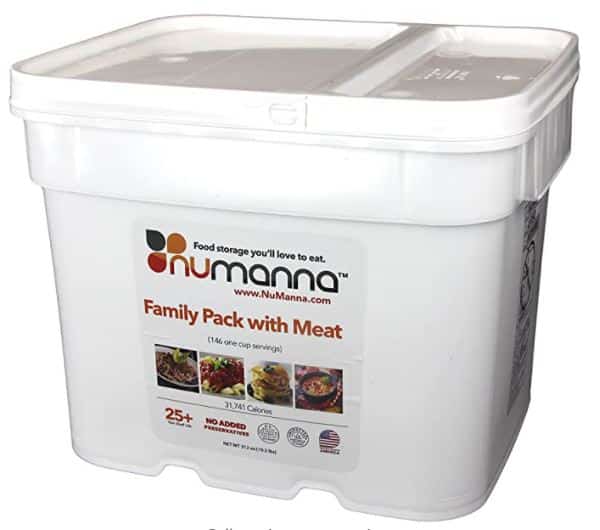
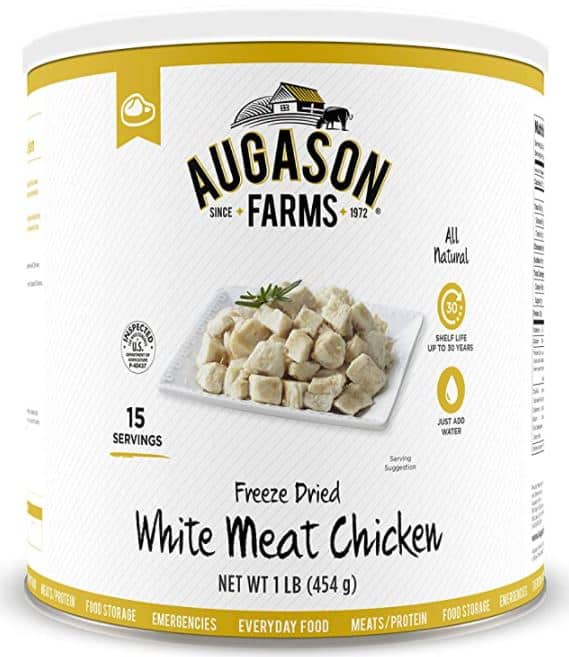
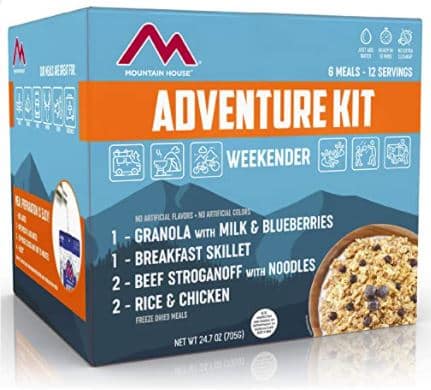
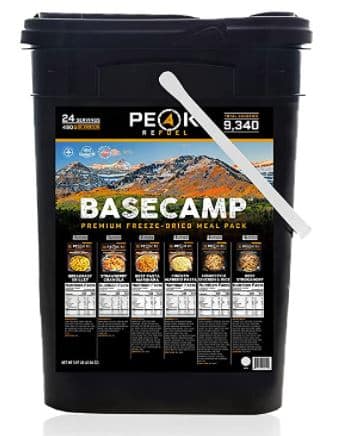
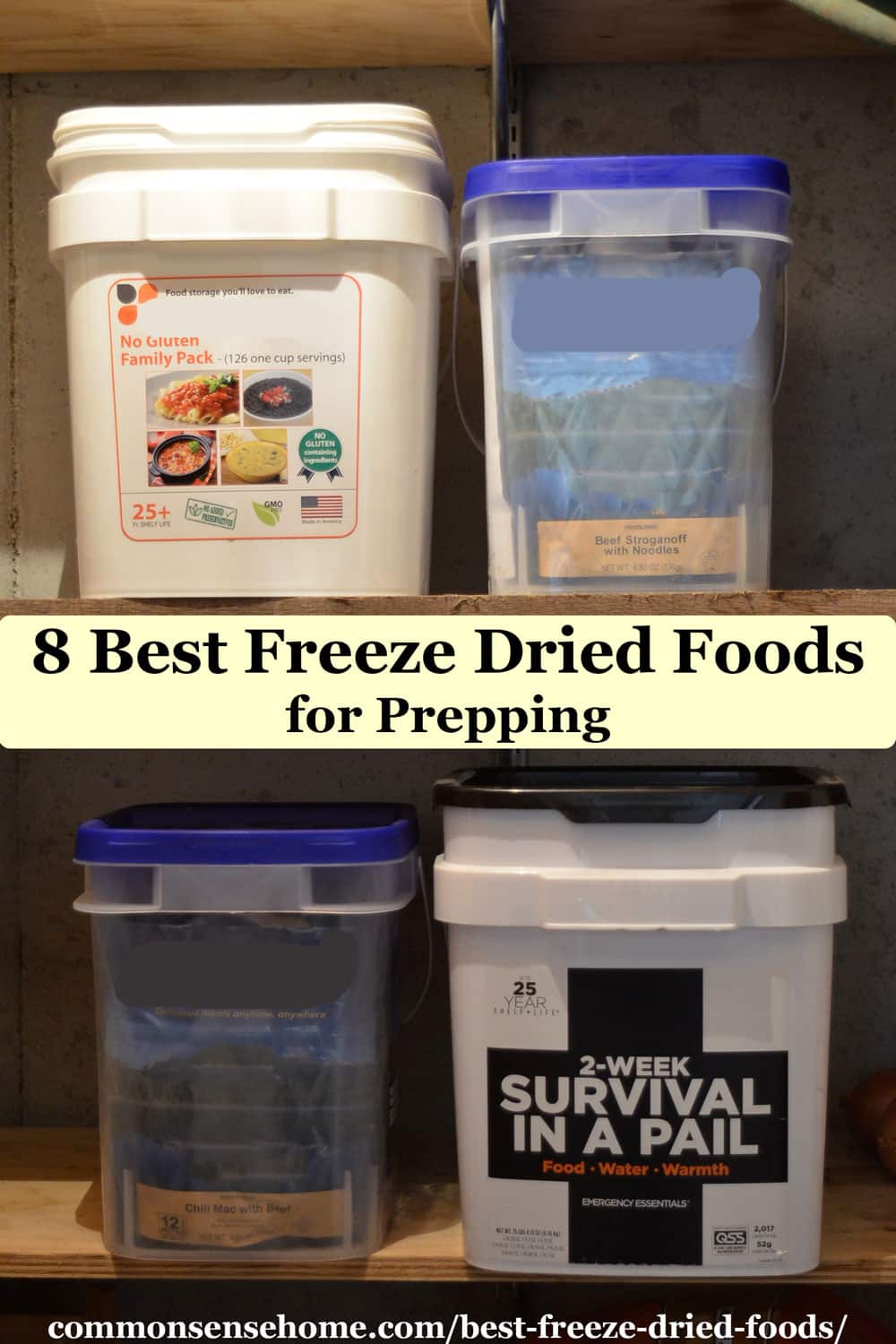
Hello,
Fantastic post Laurie, thank you!
I’d like to add Heathers Choice to the list.
They are dehydrated and not freeze dried, so the shelf life is shorter, but the ingredients and care that go into the food is outstanding.
Is ReadyWise the same as Wise Foods that got sued for fraud?
Mountain House has also had buckets for awhile now as well.
The Wise Foods that got sued for fraud was a potato chip manufacturer, not ReadyWise.
Hi Laurie, do you have any guidance on how much water to add to raw FD eggs when cooking to get to the right consistency? We tried and it ended up too ” firm” as I think we did not add enough water. Is there a recommendation as to how much water to add to a given amount of the FD egg powder?
Thank you
We normally “eyeball it” and use plenty of water, but if you specific measurements, the book “Rehydration Calculations Made Easy” gives specific measurements by volume for rehydrating freeze dried and dehydrated foods.
I thought I read that eggs to water ratio was 1:1. I’ll know after my first batch of eggs finishes in the Freeze Dryer.
I am retired and traveling constantly in my motor home. I’m looking for a convenient, 30 day emergency food supply that I can store in my storage compartment. Space is limited. I use a Berkey water purification system, so clean water is not an issue. I cook with propane so boiling water to produce hot meals is also not an issue. I’m thinking freeze dried packets for be ideal, but I would like your opinion on the matter. Thanks
Freeze dried meals are light and easy to store, and heat up fairly quickly. For just one person, I would think they would be ideal as an emergency food option.
Just saw your article (a little late, I know) and thought I would put in my 2¢ worth on THRIVE food. Thrive Life really produces a product superior to Augason Farms and Honeyville. In 2009 I owned a retail store and researched all three companies in depth and have followed their improvements ever since. Although AF & H seemed to have quite comparable quality, THRIVE food was quite a bit better quality. Over the years, it seems there has been very little change in most freeze-dried foods and that they all seem to be sourcing from the same places but Thrive Life seems to be developing progressively better quality. I have also visited the facilities of several companies and will say that TL has the cleanest facilities and takes the most care. As far as I know, TL is the only one to offer certified gluten-free and is careful to not contaminate my vegetables with wheat (wheat nor any gluten product is EVER processed on the same equipment or in the same facility) and this is a very important factor to me as it is to many others. Please take a little more time to investigate Thrive Life and take another look. I think you will find that Augason Farms and Honeyville are a toss-up but that Thrive Life is the clear leader for single ingredient foods.
Hey Laurie, Thanks for the names of some new (to me) companies. Two remarks come to mind however. I often order from Thrive and although a monthly membership type thing is available it is certainly not required. You can order directly on line or go through an independent consultant. Also, although I like the food I have gotten from Augason Farms, I only order their #10 cans and not their 5 gallon bucket bulk foods. Unlike Thrive, Honeyville and others, Augason only packs their bucket foods directly in the bucket with no mylar bags. It is impossible to tell if the seal has held during shipping. If food has been packed in mylar with oxygen absorbers, when the bucket arrives and you open the gamma top you can see instantly that the vacuum has held.
I look forward to exploring the other names you mentioned.
Thanks, Leslie. I had a hard time tracking down Thrive. When I did order through a consultant friend, the meals we got were heavy on cilantro. Our family is one of those who find cilantro to taste like soap, so that wasn’t a good fit for us. I went with Auguson in part due to availability, but looking at the Honeyville website and your concerns, Augason may get the bump in favor of Honeyville. Thanks for your feedback!
Agree on the Thrive meals. Only order the plain ingredients from almost everyone. Just fruit or just vegetables or just meats, or just grains and beans. We can put them together into some very good meals with just a little help from stocked up pastas, spices or our own canned goods.
Hi Laurie! Great post! We started stocking up on freeze dried foods a few years ago. I was not happy about some of the unhealthy ingredients in them, but I figured that it was better than having no food at all for emergencies. I haven’t bought any for a while. It’s good to know that there are much healthier options out there. I’ll be checking out these companies and looking into doing my own freeze drying, too. Thanks so much!
We experimented with freeze dried foods a few years ago. Top indulgence choice was freeze dried peaches labelled unsweetened, but fabulously sweet and ambrosially peachy. Next fave was asparagus, followed by green beans and sliced agaricus (button) mushrooms. We got a 1 year package that included a selection of salted meat that had a number of ingredients you sought to avoid. My husband was not deterred and mowed through those cans like they were popcorn He said: “They’re ok.” Similar situation with the soup blends. We were hesitant to invest in further experiments and profoundly appreciate the research you have done. We can budget to build a new emergency supply while still digging away at improving our soil, yields and root cellar-type storage. A word of caution about buying freeze dried commercial or organic strawberries: The organic standard permits the use of mercuric bromide, an anti-fungal soil additive, on organic crops,. If you want to gobble freeze dried strawberries, you might want to grow your own.
I heard about the mercury bromide from a friend of mine. Thankfully we have a neighbor who, while not organic certified, grows without chemicals, working to improve their soil, not kill it. They use cover crops to prep for the next round of planting, not soil killers. (The farm is Red Grouse Farm, for those in northeast Wisconsin.)
It’s pretty frustrating that organic certification doesn’t mean “safe”. It just keeps getting harder and harder to avoid crap in our food. Even when you grow your own, there’s still a risk of contamination from well water or air pollution.